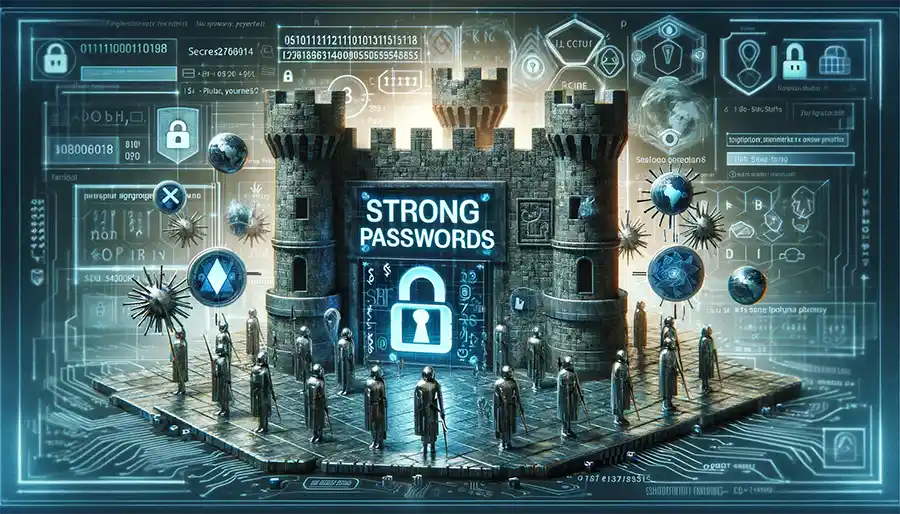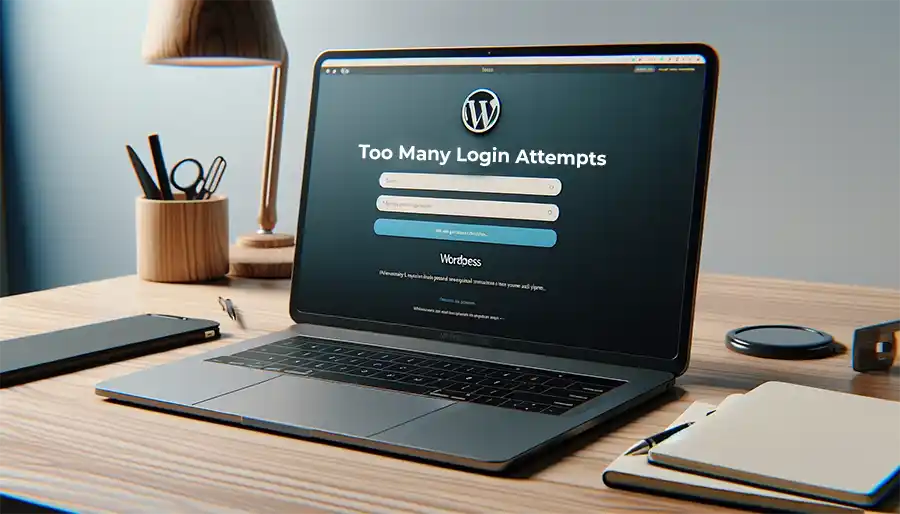How to Secure WordPress Websites: Expert Tips and Strategies
I recently received an urgent call from a panicked business owner. Their website had been infected with malware, resulting in a situation where their web pages were redirecting visitors to an online pharmacy. It was a moment of sheer panic and frustration for this business owner as clients were calling saying they could not access their website. This scenario is all too common for many business websites, emphasizing the significance of website security.
Website security encompasses a set of practices, tools, and measures designed to safeguard your website from unauthorized access, data breaches, and cyber threats. It involves strategies like regular updates, strong passwords, and security plugins to ensure your website remains safe and resilient.
The security of your website is something that is often taken for granted.
Ensuring it remains secure not only protects your business but also maintains the trust of your customers. Now, let’s delve into the essential elements of WordPress website security, shedding light on practices and strategies that can help shield your online presence from potential threats.

The Importance of Website Security
Imagine this scenario: You wake up one morning, ready to tackle your day, only to discover that your website, the online face of your business, has been compromised. Instead of your carefully crafted content and services, visitors are greeted with a pharmacy website. Panic sets in as you realize the potential damage to your reputation and business.
This is the nightmare scenario that many small business owners face when their websites fall victim to cyberattacks. Website security is not a luxury; it’s a necessity.
Here’s why WordPress website security is important:
- Protect Your Reputation: A compromised website can damage your brand’s reputation and erode the trust of your customers. Visitors who encounter security warnings or malicious content are unlikely to return.
- Safeguard Customer Data: If your website collects any form of customer data, such as personal information or payment details, a security breach can lead to the theft of sensitive data. This can result in legal liabilities and loss of trust.
- Maintain Business Continuity: When your website is down due to security issues, your online presence is disrupted, potentially causing financial losses and inconvenience for your customers.
- Prevent Malware Distribution: Malware can infect your website and then spread to your visitors’ devices. This not only harms your customers but can also lead to your website being blacklisted by search engines.
- Stay Ahead of Cyber Threats: Cyber threats are continually evolving. Regularly updating your website security measures helps you stay one step ahead of hackers.
Website security is not a one-time task; it’s an ongoing commitment to protecting your digital assets and the interests of your business.
1. Regular Backups: Your Safety Net
Your website is a dynamic entity that evolves over time. Whether it’s adding new content, updating products, or making design changes, your site is in a constant state of flux. This makes regular backups a critical aspect of your website’s security.
Backups serve as your safety net. They create a copy of your website, including all its files, databases, and configurations, at a specific point in time. In the event of a security breach, a crash, or a catastrophic error, backups allow you to roll back your website to a previous, uncompromised state.
At Bright Tribe, our hosting plans include automatic backups. This means you can rest assured that your website’s data is regularly saved, making recovery quick and painless.
2. Strong Passwords: Your First Defense Line
Your website’s security is only as strong as its weakest link, and more often than not, that link is a weak password. Many security breaches occur due to easily guessable or cracked passwords. To bolster your website’s defenses, you must employ strong passwords.

So, what makes a password strong? Here are some characteristics:
- Length: A strong password is typically longer, with a minimum of 12 characters.
- Complexity: It includes a mix of uppercase and lowercase letters, numbers, and special characters.
- Unpredictability: Avoid using easily guessable information like birthdays or common words.
A strong password might look something like this: “P@$$w0rd!Secur3.”
Remember that using the same password for multiple accounts or failing to change them regularly increases your vulnerability. Encourage your team to adopt strong password practices, and consider using a reputable password manager to generate and store complex passwords securely.
3. Updated Themes and Plugins: Closing the Loopholes
Your website relies on various themes and plugins to provide functionality and aesthetics. However, these add-ons are also potential entry points for hackers if they’re not kept up to date. Outdated themes and plugins often have known vulnerabilities that can be exploited.
To close these security loopholes, you must regularly update your website’s themes and plugins. Content management systems like WordPress make this process relatively straightforward, allowing you to review and apply updates with ease.
At Bright Tribe, our hosting plans include the maintenance of these updates, ensuring that your website remains protected against known security threats.
4. Security Plugins: Your Digital Watchdog
While the core security measures mentioned above are essential, you can enhance your website’s protection further with the use of security plugins. These plugins act as your digital watchdogs, continuously monitoring your site for suspicious activity and threats.
There are various security plugins available, each offering unique features. Some common functionalities provided by these plugins include:
- Firewalls: They filter incoming traffic to block malicious requests and prevent unauthorized access.
- Malware Scanning: These tools regularly scan your website for malware and malicious code.
- Login Attempts Limitation: Restricting the number of login attempts helps deter brute force attacks.
- IP Blocking: You can block specific IP addresses or regions known for malicious activity.
Popular WordPress Security Plugins
Installing a reputable security plugin adds an extra layer of protection to your website, effectively deterring potential attackers. Here’s a list of 5 popular WordPress security plugins that can help protect your site:
- Sucuri: Known for its website application firewall (WAF), Sucuri stands out by scanning and filtering bad traffic even before it reaches your server. It also monitors threats, checks SSL certificates, protects against zero-day exploitation, and repairs hacked websites. It includes a content delivery network (CDN) to improve site performance.
- Jetpack: This comprehensive plugin not only enhances security but also boosts site performance and manages site activity. The free version offers downtime monitoring and brute force protection, while the premium version adds features like daily automated backups, spam filtering, malware scanning, and secure authentication.
- Wordfence: A popular choice offering a free version with a powerful malware scanner, exploit detection, and a WordPress firewall. It scans your site for common threats and provides real-time updates for malware signatures. It also includes two-factor authentication for logins.
- iThemes Security: From the creators of BackupBuddy, this plugin focuses on preventing hacks and malware. It features file integrity checks, security hardening, login attempt limits, brute force protection, and more. However, it lacks its own firewall and relies on Sucuri’s Sitecheck for malware scanning.
- All-In-One WP Security: A powerful plugin for auditing, monitoring, and firewall protection. It offers features like login lockdown, IP filtering, file integrity monitoring, and user account monitoring. It also provides a basic website-level firewall for additional protection.
Each of these plugins offers unique features to enhance the security of your WordPress site. It’s important to evaluate them based on your specific needs to find the best fit for your website.

5. Limit Login Attempts: Deter the Intruders
One of the simplest yet effective security measures you can implement is limiting login attempts. This practice prevents brute force attacks where hackers repeatedly try various username and password combinations until they gain access.
By setting a limit on login attempts, you make it significantly more challenging for unauthorized individuals to breach your website. If someone exceeds the allowed number of login attempts, they’re temporarily locked out, protecting your site from potential threats.
6. Block Rogue Entities: Keep the Stans out of Your Website
For local businesses, especially those with no international clientele, blocking access from specific countries can be a strategic security move. While it may seem harsh, this approach can effectively reduce the risk of attacks from regions known for cyber threats, such as China, Russia, India, and various countries in the Middle East, often referred to as the “Stans.”
By blocking rogue entities, you reduce the potential attack surface, making your website less appealing to hackers from these regions.
Website security is not a one-time task but an ongoing commitment.
Regular backups, strong passwords, updated themes and plugins, security plugins, login attempt limitations, and geographic blocking are all critical components of a comprehensive security strategy. Protecting your website is essential to safeguard your brand’s reputation, customer data, and business continuity.
Still have questions? Want to chat about your project? Contact us today to learn how Bright Tribe can help you enhance your website’s security and protect your online presence.




